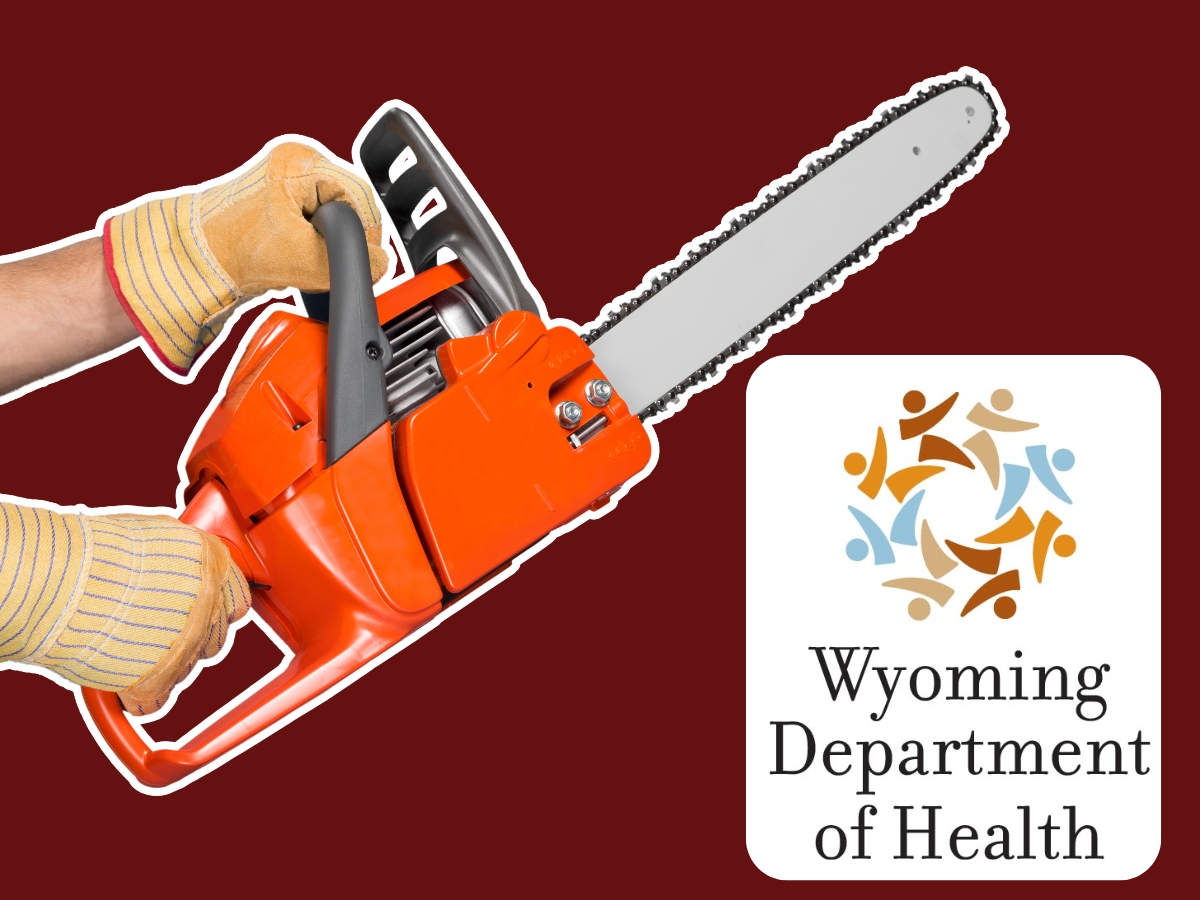Thousands of Wyomingites will likely lose their health insurance as a result of the so-called “One Big Beautiful Bill Act,” a travesty that Republicans are so proud of they’ve shut down the federal government for weeks without caring about the damage.
That’s appalling, but it goes hand-in-hand with the destructive action members of the Wyoming House’s far-right Freedom Caucus are taking by treating the state’s Health Department like it’s overrun by waste, fraud and abuse.
It’s a typical reaction by politicians who want to hold budgets hostage while taking divisive, ideological swipes at a department that has managed to craft sound health and fiscal policies despite being handicapped by poor legislative decisions.
For many years, the Wyoming Legislature has viewed the Health Department as the first place to cut when tax revenues decrease. With a budget of $2.2 billion in the current two-year fiscal cycle, it’s a big target.
This effort to mimic the federal government’s “Department of Government Efficiency” at the state level will hopefully fail and not result in the carnage that the Elon Musk-led DOGE was responsible for at the beginning of President Donald Trump’s second term. Still, the fact that the Freedom Caucus decided it needed to DOGE the Health Department at all is ample reason to worry.
How did we get here? As the Grateful Dead would say, what a long, strange trip it’s been.
In June, at a Joint Appropriations Committee meeting in Gillette, the panel heard a pitch for more funding for the Medicaid developmental disabilities waiver program. Through it, more than 570 providers care for about 2,500 people with intellectual and developmental disabilities or acquired brain injuries in home and community-based alternatives to an institution.
One of the disability waiver program’s biggest boosters for additional funding was Rep. Ken Pendergraft, R-Sheridan. I wrote a column in July about how remarkable it was to see a member of the Freedom Caucus say a social safety net program is “one of the reasons why we have government.”
I stand by that statement as well as my own support for this worthwhile program. But I didn’t know exactly where Pendergraft’s mission to obtain more funds would take us.
The Sheridan lawmaker said, “Before I sit down and authorize a $20-or-$30-or-$40 million check, knowing that taxpayers are already sacrificing, I want to look across the breadth of the Department of Health. If it considers this to be a high priority, what’s it willing to sacrifice to pay for it?”

Stefan Johansson, the department’s director, gave a diplomatic answer. He noted that three times in the past dozen years, the Department of Health saw its budget cut by more than $100 million. While the Legislature added some money back into critical programs like suicide prevention and substance abuse treatment when it could afford to, the department never fully recovered that money.
At the JAC’s August meeting, Pendergraft again pressed his point about sacrifices. Johansson explained that the disability waiver program’s biennium budget is over $300 million. “It’s a large-scale, very expensive program, because these services and the acuity of some of these clients is very high,” the director said.
It’s not a difficult concept to understand: The Legislature can’t add, say, $80 million to one expensive program and cut other health programs dollar-for-dollar and not do a considerable amount of damage to the latter.
Here’s another fact: Programs that are either required to be offered under federal law or part of lawsuit settlements account for more than 90% of the department’s budget.
Still, at the end of the meeting, Pendergraft moved that the JAC appoint a three-member subcommittee to investigate and analyze the Department of Health’s budget because “aggressive legislative oversight and attention is warranted.”
The JAC agreed, and the Legislative Management Council approved enough money for the subcommittee to meet up to five times before next February’s budget session. Lo and behold, Pendergraft is chairman.
The first two meetings in Casper and Cheyenne have not been particularly well attended but were generally cordial affairs where Pendergraft has held court over his subcommittee’s “fact-finding mission.” Johansson and his staff dutifully covered every section of the budget, proving what long-time observers of the department already knew: It’s a well-oiled machine that spends 95% of its budget on providing medical services and a modest 5% on administrative costs.
What concerns me about this fishing expedition to find waste and abuse à la DOGE is that the Legislature is looking for massive savings but is likely to find minuscule amounts. In its self-righteous anger, does anyone seriously think the Freedom Caucus isn’t going to take an ax to whatever in the budget would inflict the most pain, just because it can?
Simultaneously, lawmakers are ignoring that up to 25,000 Wyomingites are about to be hit with a more than 300% increase in their health insurance costs when the enhanced premium tax credits on the Affordable Care Act marketplace expire at the end of the year under Trump’s “Big Bill.”
It’s a solid bet many will forego health insurance. They won’t receive preventative health care, and will instead leave rural hospitals that are already at risk of closing to pick up the tab for emergency room care.
What types of wasteful health care spending does the Freedom Caucus expect to find and shut down? When Wyoming Public Radio posed that question to Freedom Caucus Chairman Emeritus Rep. John Bear — who also co-chairs the JAC — this is what he came up with: a federally funded advertising program to ensure children get vaccinated. No, I’m not kidding.
It goes against my nature, but I’ll close on a potentially hopeful note, only because Johansson told the JAC subcommittee that the $50 billion Rural Health Transformation Fund that was included in the “Big Beautiful Bill” to appease some Republican critics may actually improve health care access in rural Wyoming.
Johansson said the state may receive between $500 million and $700 million over the next five years, which could go a long way toward improving Wyoming’s health care system.
I’d much prefer the Legislature work with professionals at the Health Department on better ways to spend money to solve problems like our rural state’s lack of OB-GYN physicians and to keep maternity wards open, instead of allowing the Freedom Caucus to use the budget process to keep its thumb ever-present over public health. As they say in the health care world, that would be a good outcome.
